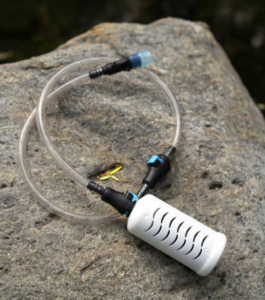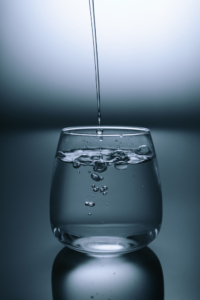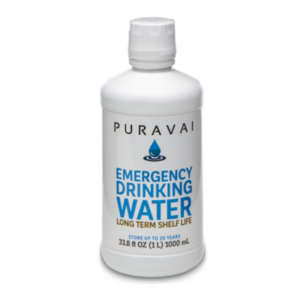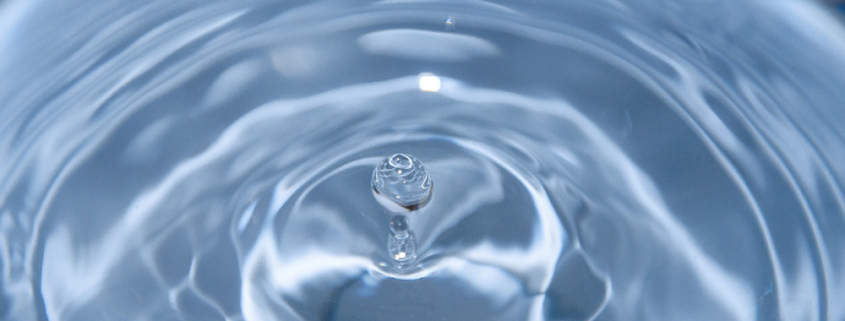Water Purification – The Science Behind Why It’s Important
Let’s talk about why having clean water during emergencies is so important.
The Science of Yucky Stuff in Water (technical terms of course)
Okay, so, first things first, water can sometimes have some pretty nasty stuff in it. Think of water as a complex soup. It’s not just pure H2O; it often contains all sorts of ingredients, and not all of them are friendly. We’re talking about things like bacteria, viruses, chemicals, parasites and tiny bits of dirt or worse. These things can make you sick if you drink them.
Cleaning Up Water
To make water safe to drink, we use science! There are a bunch of ways to do it, like using filters that catch the junk, or adding chemicals to kill off germs. Let’s discuss ways how we use science to make that water safe to drink.
1. Filtration: Think of filtration as a high-tech sieve. It’s like passing water through a super-fine mesh that catches all the tiny particles that do not belong. The mesh lets the clean water through but traps the rest. This method works because those little troublemakers we mentioned earlier are usually larger than the holes in the filter.
all the tiny particles that do not belong. The mesh lets the clean water through but traps the rest. This method works because those little troublemakers we mentioned earlier are usually larger than the holes in the filter.
We offer products for filtration such as LifeStraws, XStream Water Filters, Aquabricks & Aquadrums. Definitely check them out!
2. Chlorination: Chlorine is a chemical that can kill these microscopic bacteria and viruses. It’s tough on germs but safe for humans in the right amounts*. Water treatment plants often use this method to disinfect our tap water. Aquatabs are also a way to purify water on the go.
3. UV Treatment: Ultraviolet (UV) light is powerful enough to damage the DNA of microorganisms, making them unable to reproduce or cause harm.
4. Distillation: Imagine water as a liquid that can turn into gas when heated. Distillation is like heating water until it becomes steam, leaving behind all the rest. Then, that steam is cooled and turned back into liquid, which is now clean and pure. End result is water transformation from dirty to pristine.
These purification methods all have a strong scientific basis. They work because they take advantage of the physical and chemical properties of water and the contaminants it might contain. Filtration relies on size differences, chlorination uses chemical reactions, UV treatment harnesses the power of light, and distillation depends on the different boiling points of water and contaminants.
 So, the next time you enjoy a glass of clean, safe water, you can appreciate the science behind it. Lets make sure you stay healthy and hydrated, even in emergency situations.
So, the next time you enjoy a glass of clean, safe water, you can appreciate the science behind it. Lets make sure you stay healthy and hydrated, even in emergency situations.
Stopping Waterborne Diseases
Waterborne diseases are the villains that can make you feel really sick. They’re caused by tiny organisms you can’t even see without a microscope. Water purification methods work by stopping these diseases in their tracks.
Some specific waterborne diseases include cholera, typhoid fever, dysentery, giardiasis, cryptosporidiosis, and hepatitis A. These illnesses are caused by various bacteria, viruses, and parasites that contaminate water sources and can lead to severe health issues when ingested.
It’s science vs. germs! Lets be sure we win.
Why Our Bodies Need Water
Our bodies are like well-oiled machines, and water is the oil that keeps everything running smoothly. Here’s some reasons why we need water:
- Hydration: Every cell, tissue, and organ in your body needs water to work correctly. Without enough water, you can start to feel tired, sluggish, and even dizzy.
- Temperature Regulation: When our well oiled machine moves, we get too hot then we sweat to cool down. This sweat is mostly water, and when it evaporates from our skin, it helps lower our body temperature.
- Digestion and Nutrient Transport: Water aids digestion. It helps break down the food we eat so our bodies can absorb nutrients. It helps your body turn food into energy. Plus, it keeps everything moving smoothly in your digestive system.
- Cell Function: Inside your body, there are trillions of tiny cells, each with a job to do. Water helps transport nutrients and oxygen into the cells and carries away waste products.
- Joint Lubrication: Ever wonder why your joints don’t squeak or grind when you move? That’s because they’re lubricated with a special fluid made mostly of water. This fluid helps your joints move smoothly.
- Brain Function: Your brain is about 75% water, so staying hydrated helps us think clearly and stay focused. When you’re not properly hydrated, it can be tough to concentrate and make decisions.
- Detoxification: Water helps your body flush out toxins and waste products through urine and sweat.
- Skin Health: Your skin is your body’s largest organ, and it needs water to stay healthy. When you’re well-hydrated, your skin can look and feel better.
- Weight Management: Drinking water can help you manage your weight. Proper hydration compliments all weight management programs.
Water isn’t just something to drink when you’re thirsty. It’s a fundamental part of your well-being and survival. Without enough clean water, your body can’t function correctly, and that’s why it’s essential to prioritize clean, safe water. Remember, water is not just a necessity; it’s a life-sustaining treasure.
Food Safety:
Clean water isn’t just for drinking; it’s also for cooking and preparing food. If the water you use to cook isn’t clean, it can make your food taste weird or even make you sick. Clean water is a must in the kitchen.
Clean water also helps sanitize the cook (hands in particular), clean the food preparation area, and the equipment needed for cooking.
In a nutshell, having clean water during emergencies isn’t just about quenching your thirst. It’s about using science to get rid of the bad stuff in water, so you don’t get sick. By understanding this science, you can see why clean water is a lifesaver during tough times. So, stay curious, stay safe, and go have a delicious large glass of water!



